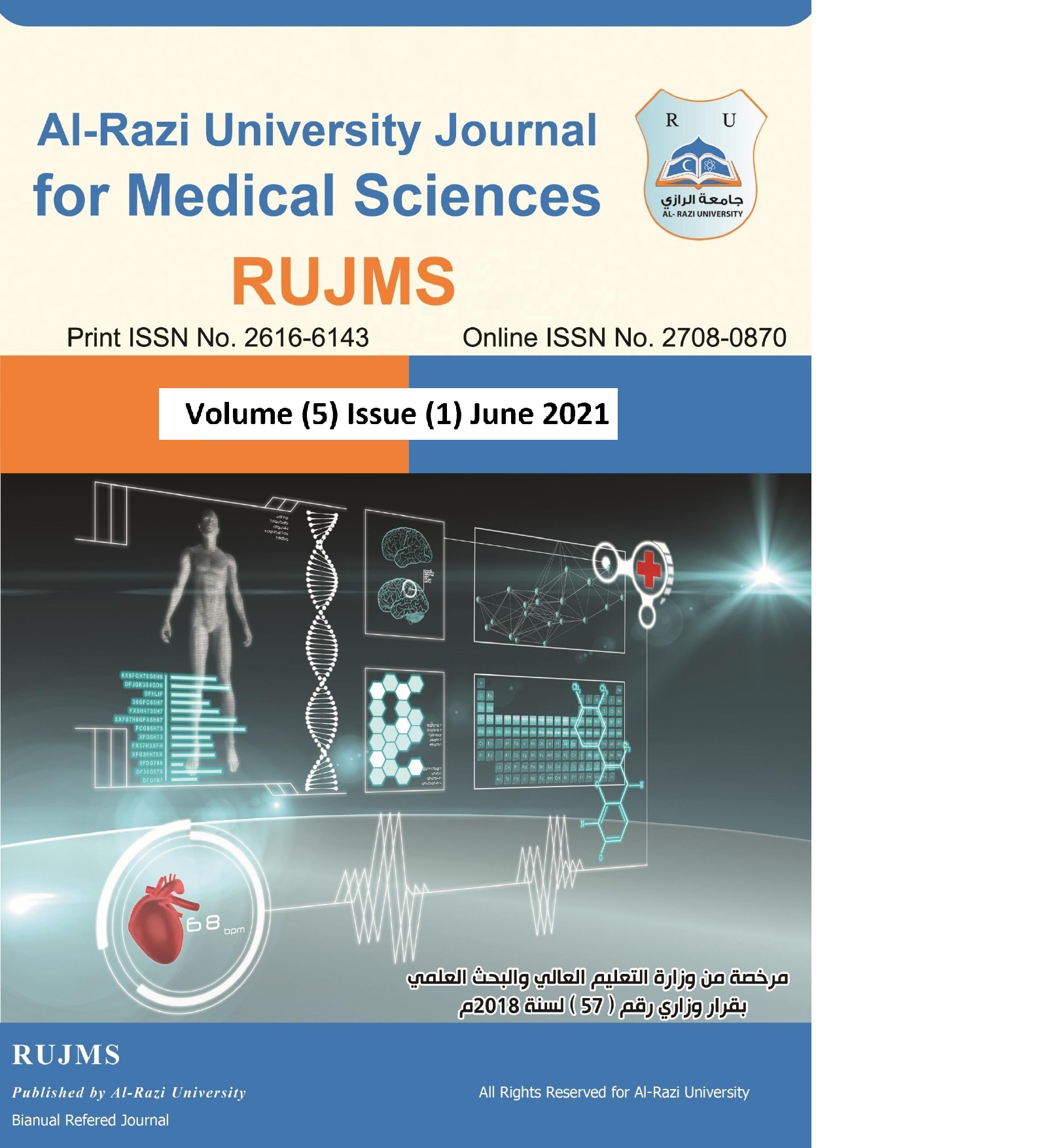Detection of Intestinal Parasites of some Fresh Vegetables and their Consumers in Sana'a City, Yemen
Abstract
الخلفية: يعتبر استهلاك الخضروات النيئة مصدراً محتملاً لنقل العديد من الأمراض الطفيلية. الأهداف: كانت هذه الدراسة الحالية تهدف إلى كشف التلوث الطفيلي الأمعائي في بعض الخضروات النيئة الشائعة وفي مستهلكيها في صنعاء، عاصمة اليمن. الطرق: جمعت 150 عينة من ثلاثة أنواع شائعة من الخضروات المتداولة في سوق صنعاء. تم غسل عينات الخضروات بشكل منفصل باستخدام محلول ملحي عادي، ماء الصنبور، ماء ممزوج بالملح، أو ماء ممزوج بخل بنسبة 5% وتم فحص الترسيبات بالمجهر المباشر. كما تم جمع خمسين عينة من البراز من مستهلكي الخضروات وفحصها بالمجهر لاكتشاف الطفيليات. النتائج: كانت معدلات التلوث الطفيلي الإجمالية 65.3%. وكان أعلى معدل للتلوث الطفيلي 76% في الخس، 64% في النعناع، و 56% في الجرجير. وكانت الطفيليات الأكثر شيوعًا هي Giardia lamblia (65.3%)، تليها Entamoeba histolytica (34.67%)، Entrobius vermicularis (47.33%)، Ascaris lumbricoide (36.67%)، Hymenolepis nana (35.33%)، Ancylostoma duodenale (24.67%)، و Schistosoma mansoni (24.67%). كما تبين أن التلوث كان أعلى في الخضروات التي تم غسلها بالمحلول الملحي العادي، وكان أقل في الخضروات التي تم غسلها بماء ممزوج بالخل. كشفت هذه الدراسة أن 80% من مستهلكي الخضروات كانوا مصابين بالطفيليات. وأظهرت الدراسة أن الذكور كانت لديهم معدلات أعلى للإصابة بالطفيليات مقارنة بالإناث. الاستنتاج: توضح هذه الدراسة ارتفاع معدلات التلوث الطفيلي في الخضروات الملوثة كمصدر محتمل لانتشار الطفيليات الأمعائية للبشر. لذا، من الضروري أن تقوم السلطات الصحية بتثقيف المستهلكين حول الطرق القياسية لغسل الخضروات قبل استهلاكها.

